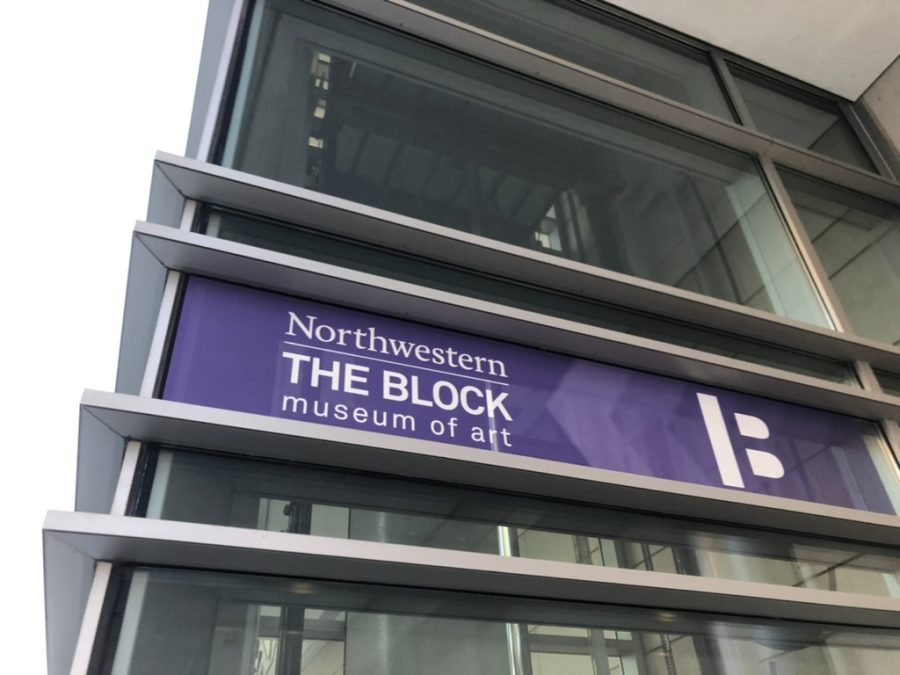Block Museum presents “Wilmington 10 — USA 10,000” in screening event
Daily file photo by Jonah Elkowitz
The Block Museum hosts filmmaker Chase Joynt for workshop and film screening event.
February 21, 2022
Filmmaker Haile Gerima’s 1979 film “Wilmington 10 — USA 10,000” came to the Block Museum of Art for a screening event Friday. The film was accompanied by an introduction and Q&A with University of Chicago professor Allyson Nadia Field.
The film weaves the story of the Wilmington 10, nine Black men and one white woman who were wrongfully incarcerated for arson in Wilmington, North Carolina in 1971, into a larger context of racial justice struggles. The film emphasizes historical echoes: Gerima grounds the story of the Wilmington 10 in the Wilmington Massacre of 1898 and a global legacy of institutional racism.
The film also delves into intergenerational trauma, memory and resistance through interviews with family and community members of the Wilmington 10, as well as activists such as Assata Shakur.
Field, a scholar in film history and film studies, said Gerima’s body of work pushes stylistic frontiers in film. “Wilmington 10 – USA 10,000” resists conventional modes of documentary filmmaking, she said.
“He is really unflinching,” Field said. “There is an assertiveness to his work – it’s confrontational.”
Gerima’s work exemplifies the spirit of the L.A. Rebellion film movement. Born out of the social and political turmoil of the late 1960s and spearheaded by Black students at the University of California, Los Angeles, the L.A. Rebellion gave rise to modes of filmmaking that subverted dominant narratives and practices in the film industry. Field said “Wilmington 10 — USA 10,000” epitomizes this subversion.
Gerima explores the boundaries of documentary narration through prioritization of alternative modes of knowledge such as first-person storytelling and oral history, according to Field.
In an interview with Variety Magazine, Gerima said access to storytelling is of critical importance.
“You see Black kids who just want to tell a story, and the world that awaits them,” Gerima said. “They want to tell a story in a world where your story is a crime, your story is excluded, your story is repressed under the official story. Storytelling is the beginning of conflict and war.”
“Wilmington 10 — USA 10,000” places the voices of Black women at the center of communal histories.
The mothers of the Wilmington 10 are key storytellers in the film. Field said this emphasizes the generational impacts of racism and the intergenerational legacy of anti-racist resistance and the power of community knowledge and care.
“(The film investigates) who gets to define history, what history is taught in school, what are permissible topics in education, and the value of alternative discourses and resistant forms of knowledge,” Field said. “It has a renewed sense of urgency now, when the very notion of history is up for debate.”
Michael Metzger, Pick-Laudati Curator of Media Arts at Block, said the film’s composition and technical artistry make not only an important activist intervention, but a remarkable work of art.
According to Metzger, this suits Block Cinema’s mission of showcasing work that recognizes the power of cinema to make change in the world.
The scope of “Wilmington 10 – USA 10,000” should not be relegated to the 1970s, Field and Metzger said during the Q&A. The issues the film spotlights are ongoing — Field cited Ahmaud Arbery’s case as an example of contemporary injustices.
“(We ought) not presume that this is a history. This is an ongoing crisis in our society,” Field said. “The past is prologue.”
Email: [email protected]
Related Stories:
— “Terra Femme” filmmaker Courtney Stephens holds live documentary-performance at Block
— School of Communication launches new student film incubator focused on mental health












